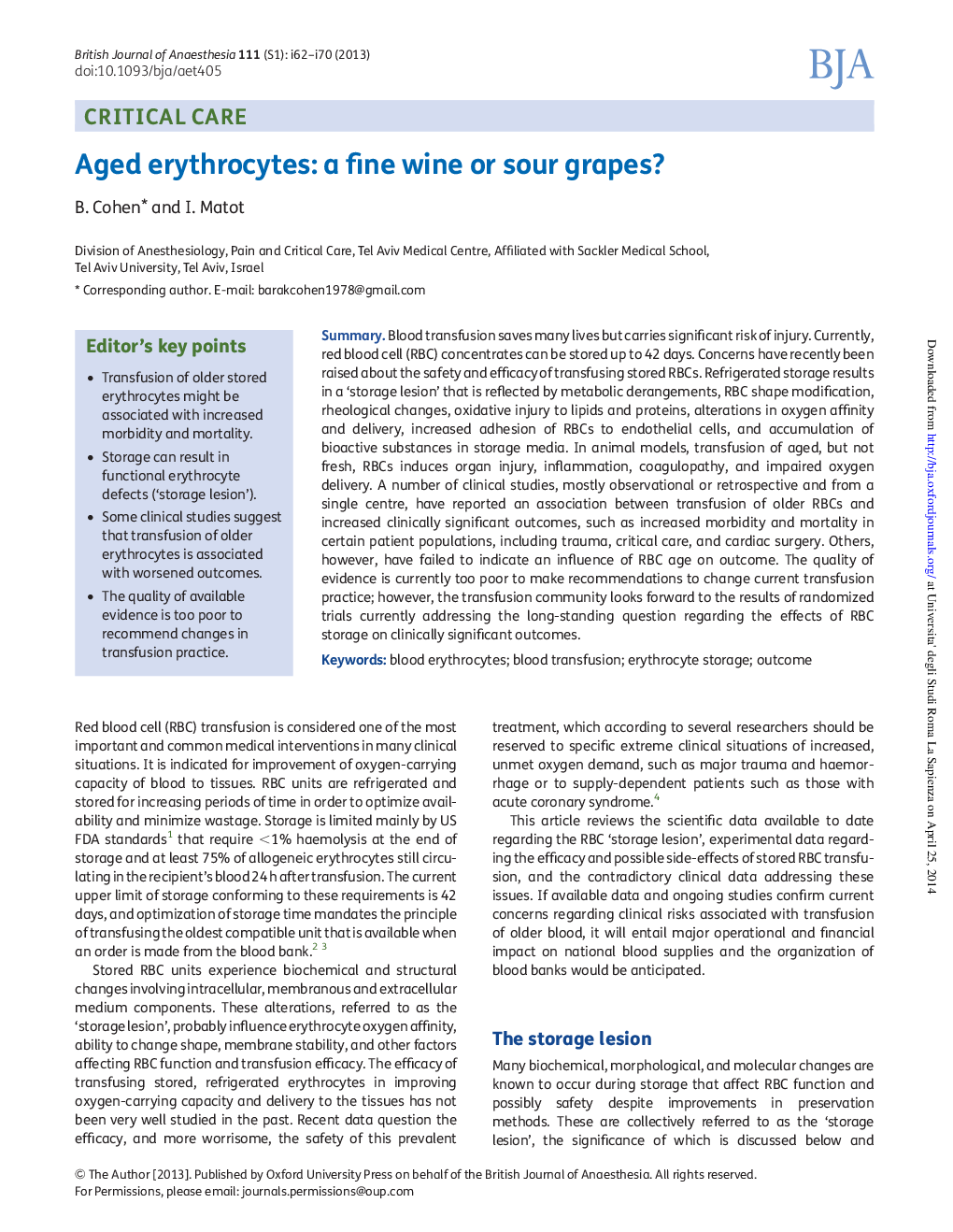| Article ID | Journal | Published Year | Pages | File Type |
|---|---|---|---|---|
| 8933758 | British Journal of Anaesthesia | 2013 | 9 Pages |
Abstract
Blood transfusion saves many lives but carries significant risk of injury. Currently, red blood cell (RBC) concentrates can be stored up to 42 days. Concerns have recently been raised about the safety and efficacy of transfusing stored RBCs. Refrigerated storage results in a 'storage lesion' that is reflected by metabolic derangements, RBC shape modification, rheological changes, oxidative injury to lipids and proteins, alterations in oxygen affinity and delivery, increased adhesion of RBCs to endothelial cells, and accumulation of bioactive substances in storage media. In animal models, transfusion of aged, but not fresh, RBCs induces organ injury, inflammation, coagulopathy, and impaired oxygen delivery. A number of clinical studies, mostly observational or retrospective and from a single centre, have reported an association between transfusion of older RBCs and increased clinically significant outcomes, such as increased morbidity and mortality in certain patient populations, including trauma, critical care, and cardiac surgery. Others, however, have failed to indicate an influence of RBC age on outcome. The quality of evidence is currently too poor to make recommendations to change current transfusion practice; however, the transfusion community looks forward to the results of randomized trials currently addressing the long-standing question regarding the effects of RBC storage on clinically significant outcomes.
Keywords
Related Topics
Health Sciences
Medicine and Dentistry
Anesthesiology and Pain Medicine
Authors
B. Cohen, I. Matot,
